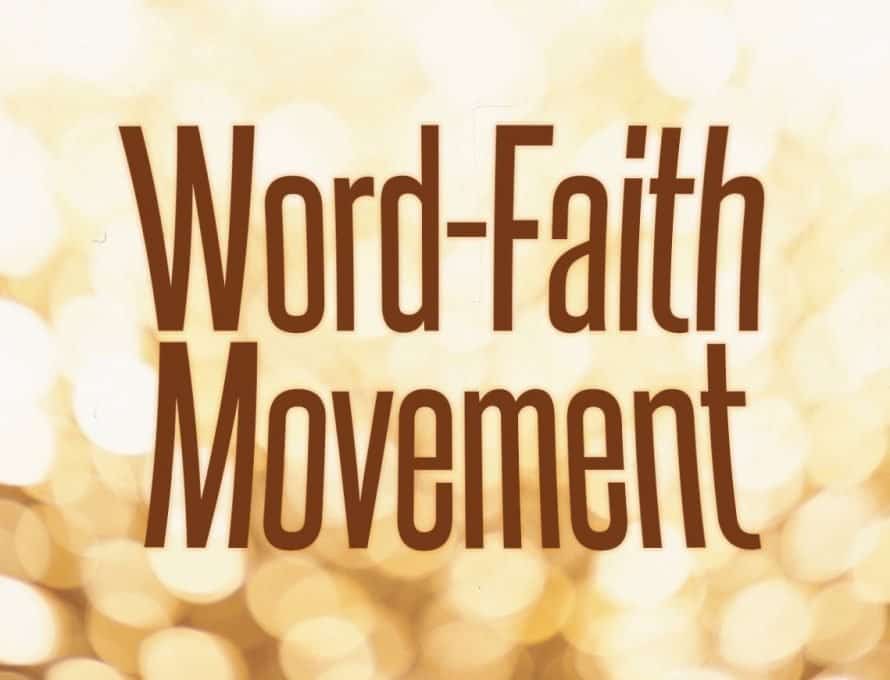This is the first in a five-part series on the Prosperity Gospel.
Does God want me rich? Can my words create reality? Are human beings little gods?
Almost without exception, leaders of today’s Word-Faith movement answer these questions with a resounding, “Yes!”
While elements of the Word-Faith movement are as old as first-century false teachings, the so-called Prosperity Gospel has borrowed from the more recent “mind sciences” and radical Pentecostalism to become a leading form of noxious Christianity.
Using satellite broadcasts, the Internet, best-selling books, social media, and stadium-size venues, today’s “health and wealth” preachers are convincing millions of people that material wealth and physical well-being are available through the creative power of our words.
But is the Word-Faith movement orthodox in its doctrine? What exactly is the Word-Faith movement? Where did it come from? And who are its leaders?
A toxic stream
The Word-Faith movement is a toxic stream of Christianity that emphasizes the power of our words to claim wealth and healing. Essentially, its leaders teach that God wills our prosperity and health; therefore, to be a Christian in poverty or ill health is to be outside God’s will.
Prosperity preachers say that if we confess – or say out loud – that we believe, we will enjoy health and wealth. In other words, our words have creative power. The idea of confessing that we have these blessings in spite of appearances is known as “positive confession.”
Where did the movement come from?
Some say the movement arose out of 19th century New Thought metaphysics and mind-science cults such as Christian Science, or even from the occult. Others argue that its roots are in Pentecostalism. Likely, it draws from both.
Many point to E.W. Kenyon (1867-1948) as the father of the Word-Faith movement. Kenyon, who pioneered religious broadcasting through his radio program, Kenyon’s Church of the Air, drew some teachings from New Thought and the mind-science cults, but he also embraced the evangelical faith-cure movement of the 19th century.
However, most consider Kenneth Hagin (1917-2003) the true father of the Word-Faith movement. Known as “Dad Hagin,” he claimed visitations to heaven and hell as well as being resurrected on three separate occasions.
Who are its leaders today?
Following is a short list of today’s most popular Word-Faith leaders:
Kenneth Copeland. A devoted student of Hagin, Copeland and his wife Gloria use television to share their false teachings with audiences around the world, teachings that include:
“Adam, in the Garden of Eden, was God manifested in the flesh.”
“Satan conquered Jesus on the cross.”
Benny Hinn. Through events, books, and television, Hinn reaches a worldwide audience with his errant views on the nature of God and the work of the Holy Spirit. Among his teachings:
The Father, Son, and Holy Spirit each consist of body, soul, and spirit. “There’s nine of them!” he once proclaimed.
“That’s why you never ever, ever, ever ought to say, ‘I’m sick.’ How can you be sick if you’re the new creation? Say, ‘I’m healed!’ Don’t say, ‘I’m a sinner.’ The new creature is no sinner.”
Joel Osteen. Arguably the most popular prosperity preacher on earth today, Osteen pastors Lakewood Church in Houston, boasting a weekly attendance of 47,000. Among his teachings: “You have to begin speaking words of faith over your life. Your words have enormous creative power. The moment you speak something out, you give birth to it. This is a spiritual principle, and it works whether what you are saying is good or bad, positive or negative.”
Creflo Dollar. Founder and senior pastor of World Changers Church International, Dollar denies the deity of Christ and rebukes pastors that proclaim it, calling them “fantasy preachers.” Among his teachings: “Because you came from God you are gods – you’re not just human.”
T.D. Jakes. Jakes leads the Potter’s House mega church in Texas. He serves a Oneness Pentecostal network of churches that reduce the Trinity to three “manifestations” of God and insists that a person must be baptized in the name of Jesus only. “You gotta be careful what you speak to, because the power of life and death is in your tongue,” he says.
Frederick K.C. Price. Price leads the Crenshaw Christian Center in Los Angeles and calls himself the “chief exponent of Name It and Claim It,” adding, “That’s the reason why I drive a Rolls Royce – I’m following Jesus’ steps.”
Paula White. An internationally known speaker and author, White claims a divine visitation in which God gave her a vision of millions of people to whom she would impart truth, including:
“God does not want us to live in poverty or lack for he wants you to be prosperous. God wants you to have it all.”
“Your words create your world…. If God can create something out of nothing, and we are created in his image, then if we can imagine it, then, so it can be for us.”
Next: What do Word-Faith leaders teach?

